上海光語生物科技有限公司,提供微小亞曆山大藻(GY-H46 Alexandrium minutum Halim)藻種、培養基及相關培養技術,并提供1升-5000升光生物反應器培養設備,有溫度顯示,pH顯示,光照度顯示,加熱,水泵,氣泵,自動調光LED燈源以及其他藻類培養配套裝置。歡迎來電咨詢。
培養基:F/2
細胞球形,尺寸較小,直徑15-29微米,細胞棕綠色,具鞘,包囊從球形到稍扁形,上面看爲圓形(直徑25-35),側面觀察爲卵形(長28-35微米,寬20-30微米)。大多數細胞含有粒狀物質和少量橘黃色物質。有腹孔,窄。
基本特征
生态影響(ECOSYSTEM)
Description
Alexandrium minutum Halim, 1960
Species Overview:
Alexandrium minutum is an armoured, marine, planktonic dinoflagellate. It is a widely distributed species associated with toxic PSP blooms in coastal regions.
Taxonomical Description:
Cells of A. minutum are small, nearly spherical to ellipsoidal, somewhat dorsoventrally flattened and occassionally longer than wide (Figs. 1-4). Cells are single with a characteristic ventral pore on the first apical plate, 1′ (Figs. 2-4,8,9). Thecal plates thin. Thecal surface ornamenation can vary from light to heavy reticulation (mostly confined to the hypotheca) with small scattered pores. Intercalary bands are present (Figs. 1-3). Large range in size in this species: between 15-30 µm in length and 13-24 µm in transdiameter width (Balech, 1989, Balech, 1995, Hallegraeff, 1991, Taylor et al., 1995, Steidinger and Tangen, 1996, Hwang et al., 1999).
Thecal Plate Description:
The plate formula for A. minutum is: Po, 4′, 6”, 6c, 10s, 5”’, 2””. The epitheca is larger than the hypotheca. The apical pore complex (APC) is oval to broadly triangular and pointed posteriorly (Fig. 3). The apical pore plate (Po) is large, narrow and oval with a wide foramen (Figs. 3,9). The Po can be either in direct contact with the first apical plate (1′) (Figs. 3,9a) or indirectly connected via a thin suture (thread-like process) (Fig. 9b). This connection can be obscured by plate growth overlap by plates 2′ and 4′. A characteristic ventral pore is located on the slender and rhomboidal 1′ plate (Figs. 2-4, 8,9). The distinctive sixth precingular plate (6”) is long and narrow (Fig. 1) (Balech, 1989, Balech, 1995, Hallegraeff, 1991, Taylor et al., 1995, Steidinger and Tangen, 1996, Hwang et al., 1999).
The epitheca is hemielliptical to conical with convex sides (Figs. 1,2,4). The apex is broadly rounded. The short hypotheca is hemielliptical with a convex to flat antapex (Figs. 1,2,4). The deeply excavated cingulum is displaced in a descending fashion one time its width with thickened margins (Figs. 1,2,4). The sulcus is shallow with narrow lists (Figs. 1,2) (Balech, 1989, Balech, 1995, Hallegraeff, 1991, Taylor et al., 1995, Steidinger and Tangen, 1996, Hwang et al., 1999).
Morphology and Structure:
A. minutum is a photosynthetic species with an elliptical nucleus (Balech, 1989, Balech, 1995).
Reproduction:
A. minutum reproduces asexually by binary fission. This species also has a sexual cycle that produces a characteristic resting cyst (Figs. 6,7) (Bolch et al., 1991).
Ecology:
A. minutum is a planktonic dinoflagellate species associated with toxic PSP events in coastal regions around the world. This species also produces dense (reddish-brown) red tides (Hallegraeff, 1991). A red tide of this species reported from Taiwan had cell densities as high as 2.5 X 10^7 cells/L (Hwang et al., 1999). Another red tide of A. minutum reported from South Australia revealed cell levels of 4.8 X 10^8 cells/L (Cannon, 1990).
This species produces a clear resting cyst as part of its life cycle. Cysts vary from hemispherical to circular in shape: cyst circular in apical view (24-29 µm in diameter) (Fig. 6); kidney-shaped in lateral view (15-19 µm long) (Fig. 7). The cyst wall is covered with mucilage (Bolch et al., 1991).
Toxicity:
Alexandrium minutum is a strong producer of PSP gonyautoxins: GTX1, GTX2, GTX3 and GTX4 (Oshima et al., 1989). These toxins can affect humans, other mammals, birds and possibly fish (Hallegraeff et al., 1988, Hallegraeff, 1991). This species is responsible for PSP events in Taiwan (Hwang et al., 1999), South Australia (Hallegraeff et al., 1988, Cannon, 1990), France (Nezan et al., 1989) and New Zealand (Chang et al., 1995).
Habitat and Locality:
Alexandrium minutum is widely distributed species found in many coastal areas of the world. Populations have been recorded from Alexandria Harbor, Egypt (Halim, 1960), Italy (Montresor et al., 1990), northern Adriatic waters (Mediterranean Sea) (Honsell, 1993), Turkey (Koray and Buyukisik, 1988), Spain and Portugal (as A. ibericum) (Balech, 1985b), France (Nezan et al., 1989), South Australia (Hallegraeff et al., 1988), and the east coast of the United States (Steidinger and Tangen, 1996).
Classification
Kingdom Protoctista
Phylum Dinoflagellata
Subphylum Pyrrhophyta
Class Dinophyceae
Order Gonyaulacales
Family Goniodomaceae
Genus Alexandrium
Species Alexandrium minutum


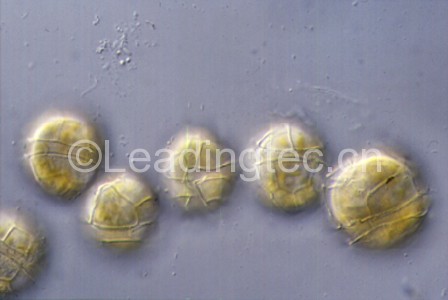
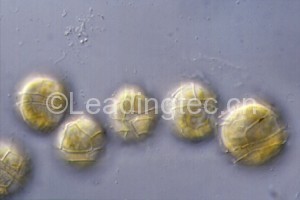

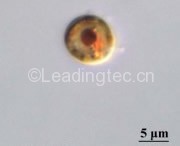
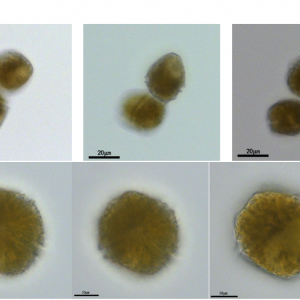
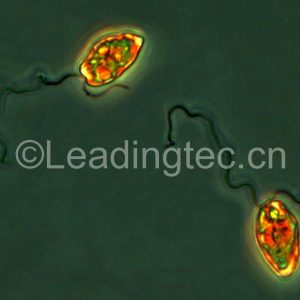
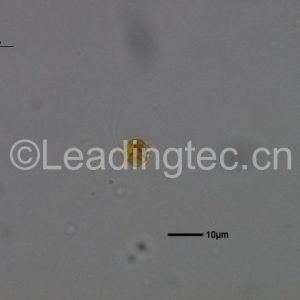
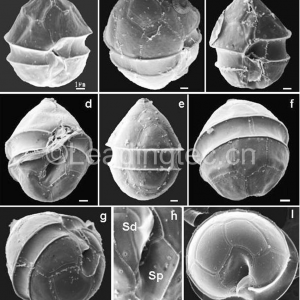
評價
目前還沒有評價